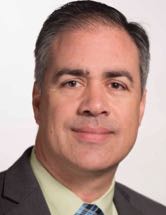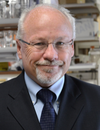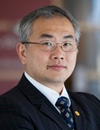08:00 | Conference Registration, Materials Pick- and Continental Breakfast in the Exhibit Hall |
|
Session Title: Opening Plenary Session |
| |
|
Plenary Session Chairman: John Palma, Ph.D. |
| |
09:00 |  | Keynote Presentation Clinical Performance of Liquid Biopsy Based Detection of EGFR Mutations in NSCLC
John Palma, Chief Medical Officer, Roche Sequencing Solutions, United States of America
|
|
09:30 |  | Keynote Presentation Microfluidics to Enable the Single Cell Analysis of Circulating Tumor Cells for Personalized Treatment
Chwee Teck Lim, NUS Society Chair Professor, Department of Biomedical Engineering, Institute for Health Innovation & Technology (iHealthtech), Mechanobiology Institute, National University of Singapore, Singapore
Cancer diagnosis and treatment are often hindered by the complexity of
tumor heterogeneity. Here, we developed a microfluidic biochip that is
able to select any circulating tumor cell(s) of interest for downstream
molecular analysis to probe their heterogeneity so as to obtain patient
derived information for the personalized treatment of cancer patients. |
|
10:00 |  | Keynote Presentation New Dimensions of Extracellular Vesicles – Cell Biopsies and Therapeutic Vehicles
Xandra Breakefield, Professor, Mass General Hospital (MGH)/Harvard Medical School, United States of America
The contributions of EVs to medicine continues to expand. These vesicles are virtual biopsies of living cells in the body that report on their dynamic physiology through an array of proteins, DNA and RNA. This array is unique to EVs and accessible through biofluids, with profiles informative for different disease states and response to therapy. These vesicles can also be used as stealth vehicles to deliver bioactive agents, including drugs and genes. Their innate stability in vivo, robust loading capacity and ability to achieve efficient delivery to different tissues expands therapeutic modalities.
|
|
10:30 | Coffee Break and Networking in the Exhibit Hall |
11:00 |  | Keynote Presentation Integrated Microfluidic Systems for the Isolation of CTCs, cfDNA and Exosomes
Steve Soper, Foundation Distinguished Professor, Director, Center of BioModular Multi-Scale System for Precision Medicine, The University of Kansas, United States of America
|
|
11:30 |  | Keynote Presentation Will the Liquid Biopsy End FFPE Biopsy Testing to Guide Therapeutic Decisions for Patients with Cancer?
Phil Stephens, Chief Scientific Officer, Foundation Medicine, United States of America
There is tremendous excitement about the potential of “the liquid biopsy” to identify targeted therapeutic options for patients with cancer. However, for many tumor types, significant and likely insurmountable challenges exist that currently exclude the liquid biopsy as an appropriate diagnostic specimen. This seminar will give a comprehensive overview of the complexities physician’s face in selecting the appropriate diagnostic assay to maximize treatment options for their patients. |
|
12:00 |  | Keynote Presentation New Approaches for CTC Subpopulation Profiling
Shana Kelley, Professor, University of Toronto, Canada
|
|
12:30 | Networking Lunch, Discussions with Exhibitors and View Posters |
|
Session: Leveraging Circulating Biomarkers to Develop Liquid Biopsies in Cancer and Beyond |
| |
14:00 | Tumor-Educated Platelets: A Biomarker Source for Molecular Cancer Diagnostics -- Platelet-based Liquid Biopsy
Bakhos A. Tannous, Associate Professor of Neurology, Massachusetts General Hospital and Harvard Medical School, United States of America
Tumor-educated blood platelets (TEPs) are implicated as central players in the systemic and local responses to tumor growth, thereby altering their RNA profile. In this presentation, we will discuss the potential use of TEPs for pan-cancer, multiclass cancer, and companion diagnostics, enabling clinical advances in blood-based "liquid biopsies". |
14:30 | Plasma Exosome Biomarkers of Immune Activation in HIV Patients on Antiretroviral Therapy
Dana Gabuzda, Professor of Neurology, Dana-Farber Cancer Institute and Harvard Medical School, United States of America
This presentation will discuss the analysis of plasma exosome protein and miRNA cargo from HIV patients with virological suppression on antiretroviral therapies and identification of exosome cargo correlating with clinical markers of immune activation. |
15:00 | Novel Approaches for Increasing Sensitivity and Specificity of Molecular Diagnostics Assays Following Mutation Enrichment
Mike Makrigiorgos, Professor, Dana-Farber Cancer Institute/Harvard Medical School, United States of America
Detecting rare mutations in clinical samples and liquid biopsies requires methods having highly increased sensitivity while retaining excellent specificity. We developed novel methods that provide mutation enrichment either prior to PCR or during PCR and enable established methodologies for detecting mutations at 0.1-0.01% levels or below. We present the advantages of combining a novel approach, NaME (Nuclease-assisted Mutation Enrichment) with COLD-PCR, digital PCR, high resolution melting or sequencing. |
15:30 | Coffee Break and Networking in the Exhibit Hall |
16:00 | DNA Sequencing of Clinical Plasma Samples to Identify Markers of Response and Resistance in Lung and Breast Cancer
Brian Dougherty, Executive Director, Translational Genomics, Oncology IMED, AstraZeneca R&D, United States of America
|
16:30 | Clinical Utility and Deployment of CTCs
Mark Connelly, Chief Industrial Operations and R&D Officer, U.S., Menarini Silicon Biosystems, Inc., United States of America
|
17:00 | Addressing the Challenges Confronting Molecular Tumor Profiling By Demonstrating Clinical Utility of ctDNA
John F. Beeler, Vice President, Business Development, Inivata Ltd., United Kingdom
Harnessing the potential of circulating cell-free tumour DNA (ctDNA) from blood as a source of a liquid biopsy is a “game-changer,” as it ushers in a new generation of molecular applications poised to impact the major aspects of a patient’s care including treatment stratification and response monitoring. This liquid biopsy approach offers the opportunity to improve and/or resolve many of the limitations inherent in current molecular tumor profiling approaches This presentation will address the current challenges associated with molecular tumor profiling and propose how these limitations can be overcome by employing a proprietary technology based on tagged-amplicon sequencing (TAm-Seq) to analyze ctDNA and address critical clinical decision points for enhance personalized medicine applications. |
18:00 | Networking Cocktail Reception for All Delegates, Speakers, Sponsors and Exhibitors |
19:30 | Close of Day 1 of the Conference. Extracellular Vesicles Dinner Short Course Begins. |







